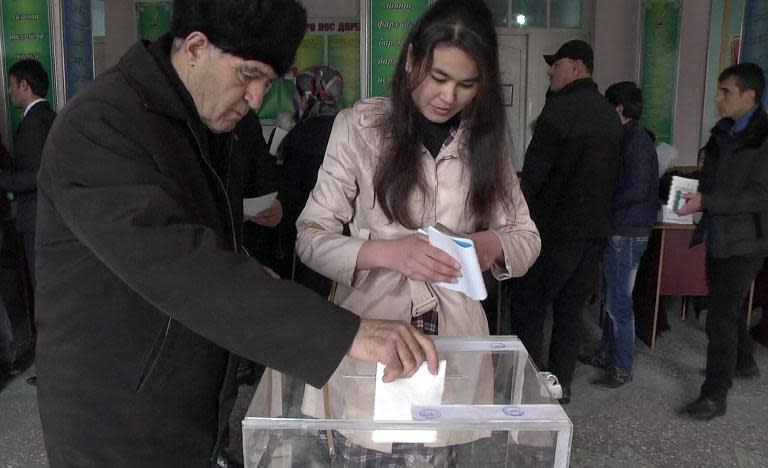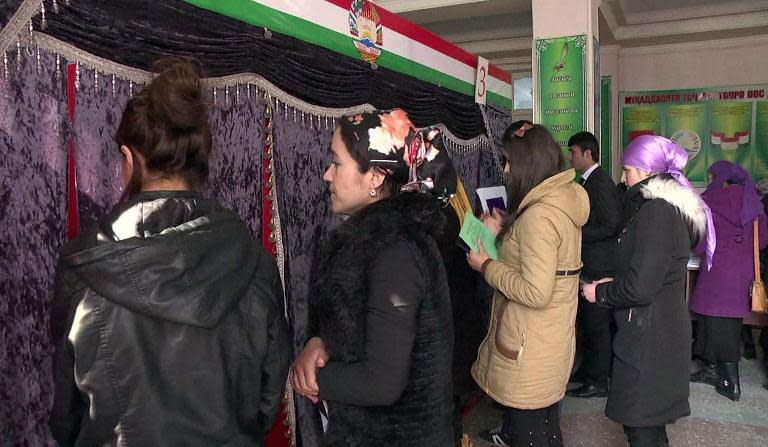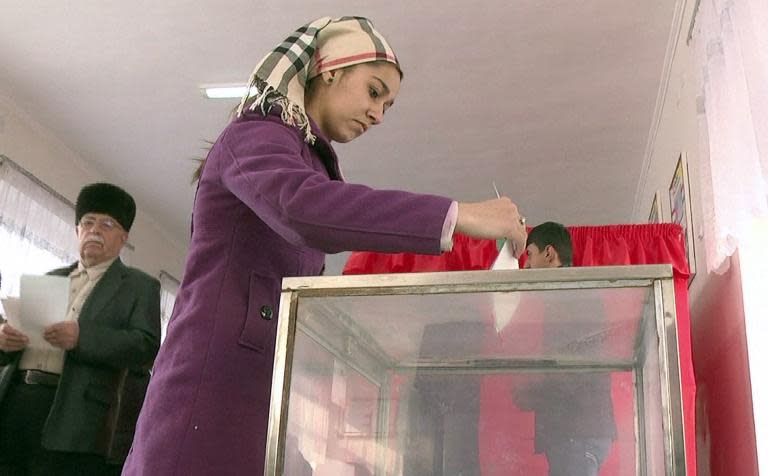Tajik ruling party sweeps polls, opposition out
Tajikistan's ruling party looked set to win a hefty parliamentary majority while the main Islamic opposition cried foul after being shut out in weekend elections said by Western observers to have been marred by "significant" cheating. With 65 percent of Sunday's vote counted, the People's Democratic Party of Tajikistan (PDPT) chaired by President Emomali Rakhmon was on course to take the vast majority of the legislature's 63 seats. But the opposition Islamic Renaissance Party of Tajikistan (IRPT) -- the only registered faith-based party in ex-Soviet Central Asia -- failed to win a single seat for the first time since 1999. IRPT, Tajikistan's second largest party by membership, is one of the few potential sources of genuine opposition to Rakhmon's 22-year rule. Its chairman, Muhiddin Kabiri, said the party refused to accept results that "did not correspond with reality". Another opposition group, the Social Democratic Party of Tajikistan, critical of the Rakhmon government, failed to win any seats, as did the Communist Party. Three other parties that made it into parliament -- the Agrarian Party, the Party of Economic Reforms of Tajikistan and the Socialist Party of Tajikistan -- are broadly viewed as pro-government. The IRPT complained of government harassment during the campaign and a report by foreign election observers painted a damning picture. "Significant shortcomings, including multiple voting and ballot box stuffing, and disregard of counting procedures meant that an honest count could not be guaranteed," said Norbert Neuser, head of a European Parliament delegation. The OSCE Parliamentary Assembly added: "The imbalanced coverage by state media, negative reporting on the opposition Islamic Revival Party of Tajikistan and the absence of genuine political debate considerably limited the opportunity for voters to make an informed choice." -'People lost'- The IRPT, which includes members who fought against forces loyal to Rakhmon in a five-year civil war in the 1990s, won only 1.5 percent of the national vote, according to the central electoral commission. "We knew that there was pressure and that it would not be easy for us, but we did not expect such results," Kabiri said. "It was the people who lost in these falsified elections." Khikmatullo Sayfullozoda, a member of the IRPT political committee, told AFP the elections were "not transparent" and "contradictory to the interests of the people." Saimiddin Dustov, head of the Dushanbe-based think-tank Indem, said the government had apparently taken a decision to exclude the IRPT from the legislature. "The authorities believe that the IRPT does not deserve to be in the parliament, in the political life of the country, and that the IRPT is no longer an important player," he told AFP. -'Disabled text messaging'- Adding to the tense atmosphere on election day, a representative of a major mobile communications company told AFP on condition of anonymity that the government had ordered operators to disable SMS messaging for "national security" reasons. Then the announcement of the results was delayed by several hours, due to what Tajik media reported was a power failure at the headquarters of the impoverished country's central election commission. According to the World Bank, Tajikistan is the most remittance-dependent country in the world, with the money sent home by economic migrants equivalent to almost half of GDP. Tajikistan shares a 1,344-kilometre (835-mile) border with Afghanistan and endured a bitter civil war from 1992 to 1997.

 Yahoo Finance
Yahoo Finance 



